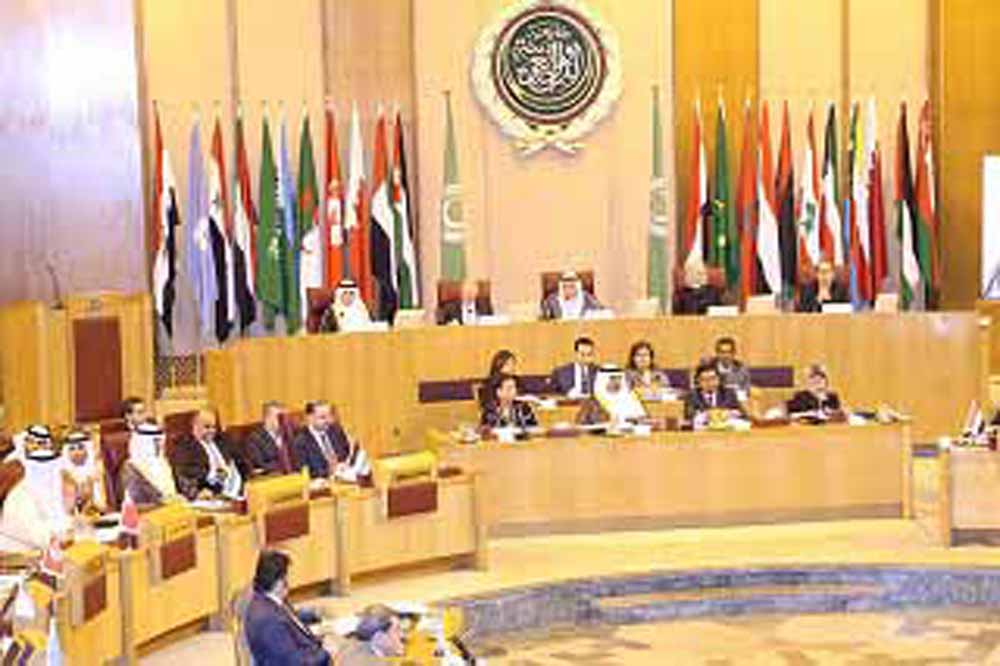Media’s role vital in spreading culture of tolerance: UAE
By viji Monday, 25 May 2015 2:45 PM

(Wam) / 22 May 2015
Arab Information Ministers Council approves UAE’s proposal on culture of tolerance and counter-terrorism
Cairo - A UAE proposal on the role of the media in promoting values of tolerance and combating extremism was approved on Thursday by the 64th meeting of the Arab Information Ministers’ Council, which was held under the Chairmanship of the UAE, at the General Secretariat of the Arab League in Cairo.
Ibrahim Al Abed, Director-General of the National Media Council (NMC), chaired the meeting. The UAE delegation also included Juma Al Leem, Director of the Media Content Department at the Council, and Ali Al Shamili, in-charge of Arab League Affairs at the UAE Embassy in Cairo.
The council emphasised the vital important role of Arab media organs in spreading the culture of tolerance and fighting extremism as part of a holistic media strategy that makes better use of both traditional and modern media platforms to build a public opinion that advances values of tolerance, both theoretically and practically, among individuals and groups. It is also intended to promote dialogue and interaction among Arab-Islamic nations and other peoples by highlighting the values of the Arab-Islamic civilisation, which denounce practices of fanaticism, extremism and terrorism.
The UAE-proposal to the 64th Ordinary Session of Arab Ministers of Information Council in Cairo says, “tolerance is one of the finest values that contributes to sustainability and progress of human communities, elevates the value of peaceful co-existence, and addresses common destiny in terms of geography or culture where all work together to realise common human goals under an environment of diversity that builds, rather than destroys.”
“It is the responsibility of social, educational and cultural institutions to disseminate the values of tolerance and counter-terrorism. However, media actors remain the key facilitator to reaching these goals, given their far-reaching ability to reach out to millions of peoples and to spread information to influence public opinion through news and through other entertainment, religious, cultural and marketing programmes.”
“To succeed in this critical mission, media actors should have a comprehensive, long-term strategy with specific goals that all media and community stakeholders should pursue together so as to be able to realise them.”
The blueprint also calls for fostering Arab intellectual and media talent to produce media content that preaches the values of tolerance, accepting and respecting others, and also to attract most influential personalities and institutions in the West so as to interact and communicate with Arab communities through conferences, researches and studies with the aim of presenting the values of Arab civilisation. It also calls for the launching of massive media campaigns to counter the extremist ideology within the Arab world and the wider world, so as to expose the dark sides of this ideology.
The UAE proposal also calls for providing cultural and media opportunities to young generations to practice their right to communication and to responsible cultural expression that serve their nations.
The proposal stresses that extremist religious rhetoric should not be given space in the media, adding that the media should also ensure that it does not unintentionally contribute to spreading that discourse. On the contrary, it notes, media should give more space to the tolerant, moderate religious message and work to develop the media message to become more responsive to values of tolerance, accepting the views of others and endorsing the concept of peaceful co-existence, in addition to countering terrorism.
The UAE proposal also recommends that a series of media initiatives be launched to deliver these goals. These include the launching of specialised e-channels and media platforms in Arabic whose core objective is to build a culture of tolerance and to counter extremist and terrorist ideology. Another proposed initiative is the launching of a media and intellectual training programme to qualify media persons and enable them to address extremist ideology through adoption of a media discourse that defends these values. The strategy also calls for inviting international journalists and opinion makers to come to the Arab region to get an insight into the reality of tolerance and co-existence and for the culture of tolerance and counter-terrorism to be incorporated into the curricula of colleges of journalism and mass communications.
The UAE proposal stresses the need for establishing units to monitor Arab and international media coverage of extremist ideology and its trends within public opinion using creative analysis approaches, and for the forging of partnerships between media establishments and other cultural, educational and social institutions to produce intellectual materials and release them into the media.
It also notes that any media effort will not be able to deliver the desired target of promoting values of tolerance without depending on reputable intellectual, legal, religious and moral references at regional and international levels.
The 64th Ordinary Session of Arab Ministers of Information Council agreed to celebrate the Arab Media Day on April 21 every year in recognition of the role of media in the Arab World.




























Add new comment